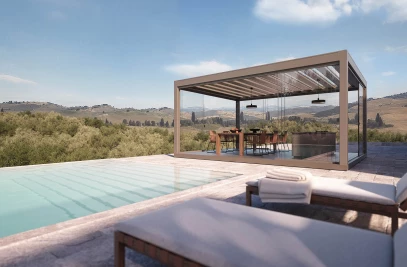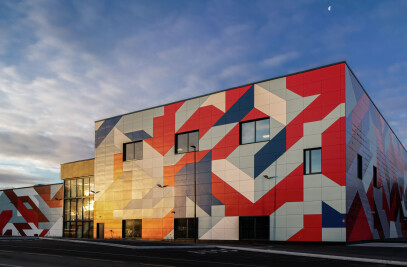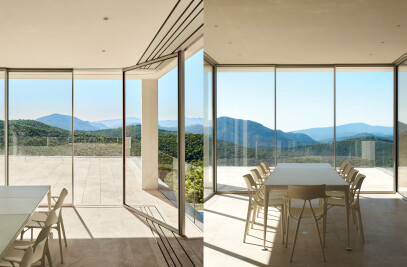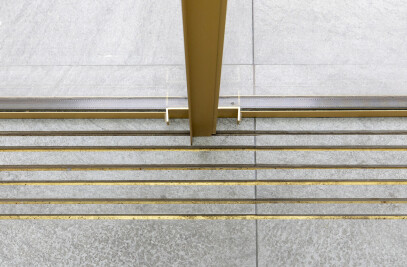In Bentonville, Arkansas, the Thaden School aims to establish an innovative concept for future education, while reflecting the rich, pastoral heritage of the landscape that surrounds it. The concepts and ideas driving this project were developed by more than 30 participants and stakeholders who came together with Eskew+Dumez+Ripple architects to develop a masterplan vision.

Central to the school is the concept of hands-on learning, with lessons that engage students with the surrounding pastoral environment and its rich ecosystem. By interweaving the school with the landscape, students can see science come to life while exploring the on-campus gardens and greenhouses.

Rather than creating a singular monolithic structure, the school is dispersed into several different buildings, spread out to make room for sprawling views of the landscape and offering students plenty of opportunities to appreciate the breadth of nature between classes.

At the centre of this collection of buildings is the Home Building. Influenced by the vernacular architecture of the region, the structure is dedicated to hosting a comforting and familiar atmosphere.

Complete with a teaching kitchen, an expansive dining hall, library, and unstructured study and lounge spaces, the Home Building is influenced by the beauty of local, vernacular architecture. With its board and batten facades and all wood construction, inspiration was specifically drawn from the Ozark farmhouse.

Part of the innovative curriculum provides the opportunity for students to learn directly from their surroundings. A ‘perfect loop’ system allows students to eat and compost the food they grow on-site with students taking classes in a state-of-the-art teaching kitchen. Further to this, in the rear of the Home Building, a ‘water lab’ detains most of the site’s rainwater, offering a unique ‘classroom outside the classroom.’


































